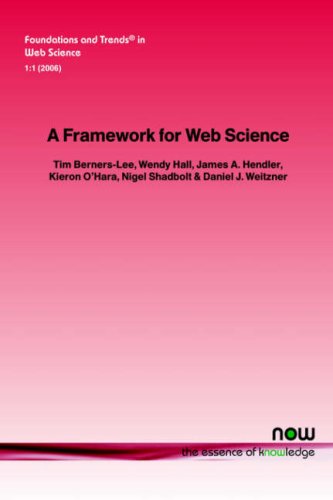The Importance of Time-Stamping to Relevance
Time-stamping is of interest because the temporal element of context is essential for understanding a text (to take an obvious example, when reading a paper on global geopolitics in 2006 it is essential to know whether it was written before or after 11th September, 2001). Furthermore, some information has a 'sell-by date': after a certain point it may become unreliable. Often this point isn't predictable exactly, but broad indications can be given; naturally much depends on whether the information is being used in some mission critical system and how tolerant of failure the system is. General temporal information about a resource can be given in XML tags in the normal way. However, in the body of the resource, which we cannot assume to be structured, there may be a need for temporal information too, for users to find manually. In such a case, it is hard to identify necessary temporal information in a body of unstructured text, and to determine whether a time stamp refers to its own section or to some other part of the resource. It may be that some ideas can be imported from the temporal organisation of more structured resources such as databases, as long as over-prescription is avoided [173]. In any case, it is essential to know the time of creation and the assumptions about longevity underlying information quality; if the content of a resource 'is subject to change or withdrawal without notice, then its integrity may be compromised and its value as a cultural record severely diminished' [107].
Notes:
Time-stamping is a crucial function of semantic data. Some information grows less accurate over time, while a context is desired for other data.
Folksonomies: web science semantic web time-stamping
Taxonomies:
/food and drink (0.500731)
/technology and computing/hardware/computer components/memory (0.499482)
/health and fitness/disease/epilepsy (0.380812)
Keywords:
temporal information (0.962602 (negative:-0.222343)), General temporal information (0.816981 (neutral:0.000000)), necessary temporal information (0.800183 (negative:-0.222343)), Relevance Time-stamping (0.726566 (positive:0.697526)), temporal element (0.688884 (positive:0.577281)), temporal organisation (0.652409 (neutral:0.000000)), crucial function (0.634830 (positive:0.697526)), global geopolitics (0.620192 (neutral:0.000000)), semantic data (0.619834 (positive:0.697526)), obvious example (0.616185 (neutral:0.000000)), broad indications (0.605221 (negative:-0.260657)), normal way (0.594615 (neutral:0.000000)), certain point (0.594421 (negative:-0.424322)), XML tags (0.593040 (neutral:0.000000)), unstructured text (0.588539 (negative:-0.222343)), cultural record (0.583906 (negative:-0.384368)), structured resources (0.583053 (neutral:0.000000)), information quality (0.575115 (positive:0.541934)), context (0.491237 (positive:0.577281)), body (0.473076 (negative:-0.222343)), case (0.472531 (neutral:0.000000)), tolerant (0.446906 (positive:0.348684)), assumptions (0.444394 (positive:0.541934)), refers (0.443414 (neutral:0.000000)), longevity (0.442147 (positive:0.541934)), Importance (0.441308 (positive:0.697526)), paper (0.438742 (neutral:0.000000)), date (0.438343 (neutral:0.000000)), failure (0.437459 (positive:0.348684)), notice (0.437236 (neutral:0.000000))
Concepts:
Semantic Web (0.945797): website | dbpedia | freebase | yago
Nigel Godrich (0.795627): website | dbpedia | freebase | yago | musicBrainz
Object-oriented programming (0.716610): dbpedia | freebase
Critical thinking (0.707983): dbpedia | freebase | opencyc | yago
The Normal (0.672068): website | dbpedia | freebase | yago
Time (0.664535): dbpedia | freebase | opencyc
Normal distribution (0.653828): dbpedia | freebase
Accuracy and precision (0.643644): dbpedia | freebase | opencyc





